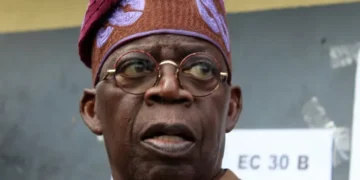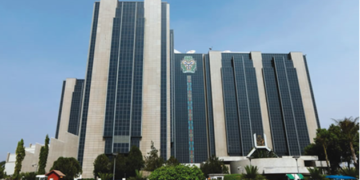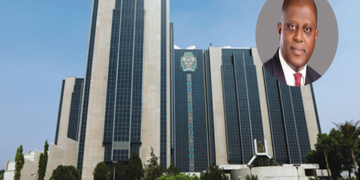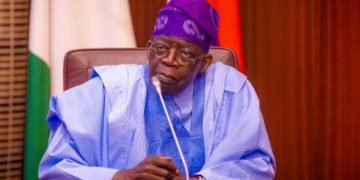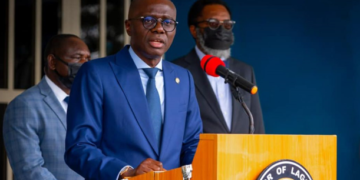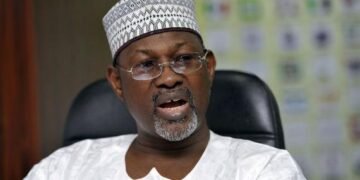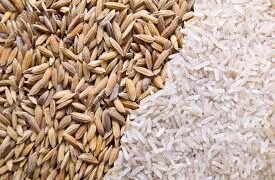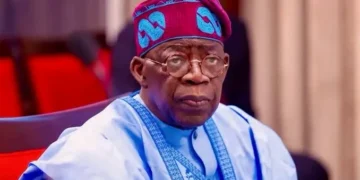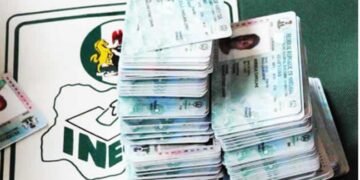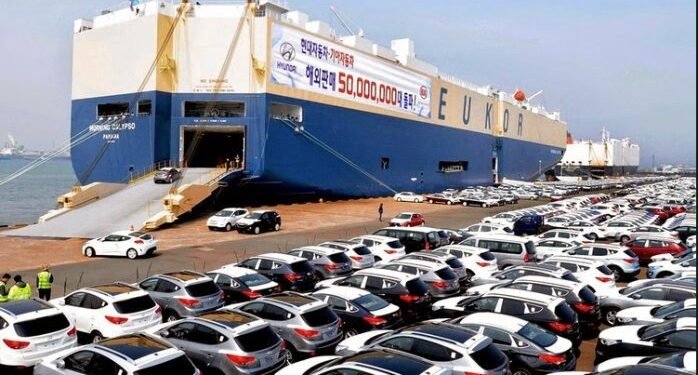The Federal Government of Nigeria plans to slash the import duties placed on tractors, buses, and passenger vehicles in the country. The government has said the move is to alleviate socio-economic hardship on Nigerians.
Laolu Akande, the media aide of Vice President Yemi Osinbajo disclosed this in a tweet via his Twitter handle.
Akande wrote, “To further cushion current socio-economic conditions, Buhari adm is proposing more tax incentives in the 2020 Finance Bill including import duty reductions from 35 to 10% & 0% levies on tractors, transport vehicles & co, 50% reduction of minimum tax, specific TETFUND exemption.”
He also said that “there would also be tax relief for contributions to the COVID-19 Relief Fund, while retirees’ compensation exemption threshold is to be raised from N10,000 to N10m & software acquisition would now qualify as capital expenditure allowing for tax recovery of same.”
To further cushion current socio-economic conditions, Buhari adm is proposing more tax incentives in the 2020 Finance Bill including import duty reductions from 35 to 10% & 0% levies on tractors, transport vehicles & co, 50% reduction of minimum tax, specific TETFUND exemption…
— Laolu Akande (@akandeoj) November 18, 2020
In October 2013, the government announced an Automotive Industry Development Plan (NAIDP), which aimed to expand domestic vehicle manufacturing. The NAIDP imposes a 35 percent levy on automobile imports, above the 35 percent tariff, bringing to the total duty of 70 percent. The NAIDP allows companies that manufacture or assemble cars in the country to import one vehicle for every one manufactured locally.
While reacting to the vehicle import levy slash, PAN Chairman Ahmed Aliyu Wadada urged the Federal Government to reverse the auto-tariff reduction plan, arguing that it will adversely affect local manufacturing and the companies involved in accessories, which will translate to a rise in unemployment.
He urged the government to find “sustainable and permanent” solutions to socio-economic problems in Nigeria rather than temporary ones that will have a negative impact.
Wadada said, “the Federal Government should take a look at the policy and reverse it for the betterment of Nigerians. Such policy somersault is injurious to the survival and development of the automobile industry. Instead of creating employment opportunities, it would create employment problems due to the lowering of activities by automobile plants.
“What informed the position of the government is to cushion the socio-economic problems of Nigeria but it should not be addressed on ad-hoc basis measure. Tackling the socio-economic problem of Nigeria should be better done in a more sustainable and permanent way. If you create employment opportunities for the citizenry, it is a more effective and better way of dealing with it.”
The Federal Executive Council (FEC) on Wednesday approved the Finance Bill 2020 without increase in taxes. This is according to the tweets from The Federal Ministry of Finance, Budget and National Planning.
The Ministry wrote “FEC APPROVES FINANCE BILL 2020, NO INCREASE IN TAXES 2020 Finance Bill, critical to the implementation of the 2021 Budget has been approved by the Federal Executive Council presided over by President Muhammadu Buhari. The bill will soon be transmitted to the National Assembly for consideration”
FEC APPROVES FINANCE BILL 2020, NO INCREASE IN TAXES
2020 Finance Bill, critical to the implementation of the 2021 Budget has been approved by the Federal Executive Council presided over by President @MBuhari. The bill will soon be transmitted to @nassnigeria for consideration pic.twitter.com/kx19rIR3uD
— Federal Ministry of Finance (@FinMinNigeria) November 18, 2020
By: Ifunanya Ikueze










